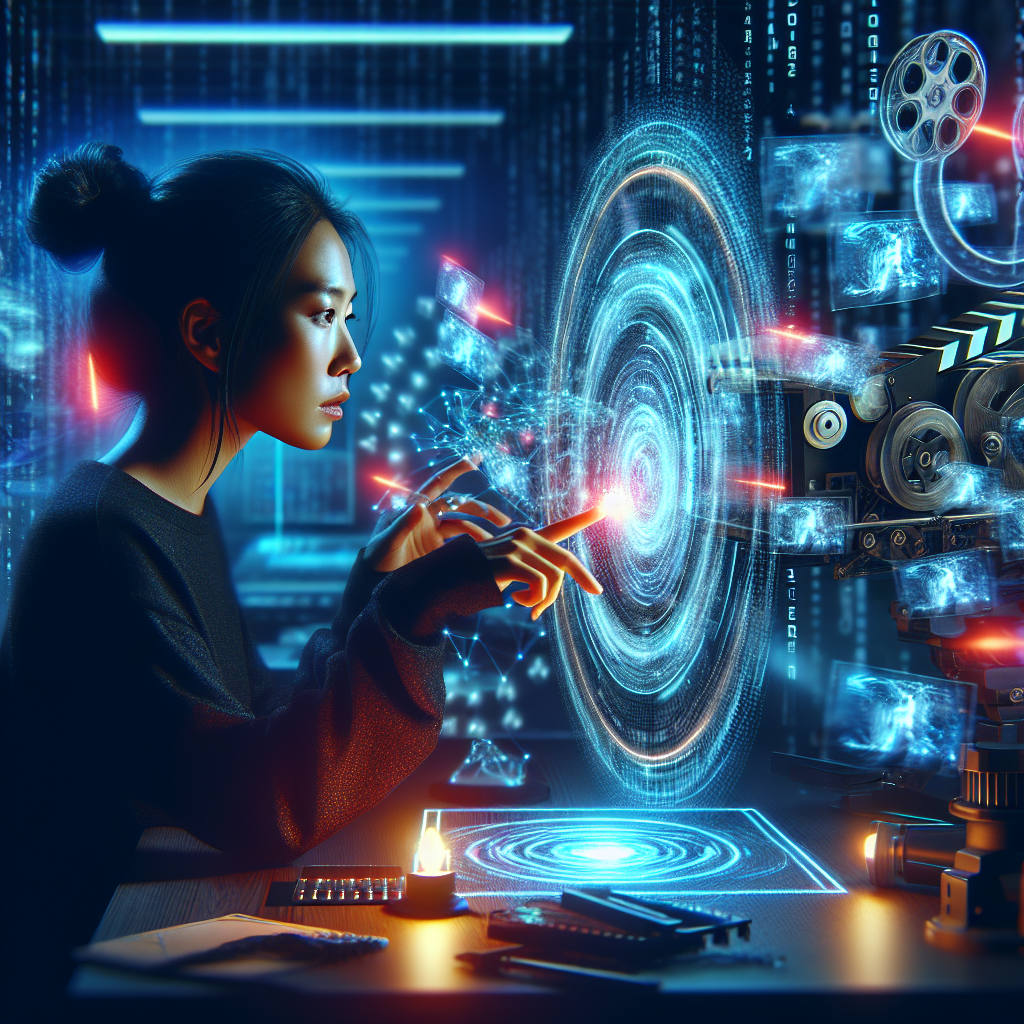The world of filmmaking has always been defined by artistry, teamwork, and technical skill. However, as we step into the digital era, a groundbreaking force is emerging: artificial intelligence (AI). Its ability to optimize workflows, amplify creative possibilities, and make filmmaking more accessible is reshaping the entire process of creating, producing, and distributing films.
The Era of Pre-Production
Scriptwriting and Storyboarding
One of the biggest ways AI is influencing filmmaking occurs during pre-production. AI-based tools can assist writers by crafting scripts based on designated themes, genres, or character outlines. For instance, software such as Plotagon and ScriptAI can examine successful scripts and enhance brainstorming sessions, delivering innovative ideas that elevate the narrative.
Furthermore, AI can facilitate storyboarding. Platforms like Celtx and ShotPro leverage AI algorithms to generate visual representations of scripts, helping filmmakers visualize scenes and make adjustments promptly. This smooths the transition from concept to production, significantly shortening pre-production time.
Casting and Scheduling
AI streamlines casting procedures through sophisticated algorithms that evaluate past actor performances to gauge their suitability for particular roles. By assessing factors like audience engagement and box office performance, AI-powered casting tools enable filmmakers to make well-informed choices, boosting the likelihood of a film’s success.
Moreover, AI scheduling tools can refine shooting schedules by taking into account factors such as location availability, actor timelines, and weather conditions. This minimizes delays and ensures a more streamlined production process.
Enhancing Production
Cinematography and Editing
In the production phase, AI is transforming cinematography and editing practices. AI-driven camera systems can autonomously track actors, modify lighting, and even suggest camera angles, allowing directors to prioritize storytelling over technical aspects.
In the editing room, AI plays a vital role in sifting through large volumes of footage. Tools like Adobe Premiere Pro’s Sensei and Avid’s Media Composer harness AI to identify the ideal takes, propose cuts, and even generate rough edits automatically. This not only accelerates the editing process but also enhances the overall quality of the final product.
Visual Effects and Animation
The realm of visual effects (VFX) is also undergoing an AI transformation. Tools like DeepArt and Runway ML utilize machine learning to create realistic animations and effects. This allows filmmakers to achieve high-quality visuals without the need for large VFX teams, making advanced effects more accessible to independent filmmakers.
Post-Production and Distribution
Sound Design and Music Composition
AI’s influence extends beyond visuals; it’s also impacting sound design and music composition. AI-driven tools like AIVA and Amper Music can compose original soundtracks tailored to the film’s tone and themes, offering filmmakers a wide range of options without the steep costs associated with traditional composers.
Audience Targeting and Distribution
Once a film is finished, AI aids in crafting distribution strategies. Machine learning algorithms can study audience preferences and market dynamics, helping filmmakers decide the best release strategies, platforms, and marketing approaches. By customizing campaigns for specific demographic groups, filmmakers can enhance viewership and engagement.
Democratizing Filmmaking
Perhaps the most significant shift AI is fostering within the film industry is the democratization of filmmaking. With AI tools becoming increasingly user-friendly and affordable, emerging filmmakers can access cutting-edge technology that was once exclusive to major studios. Platforms like Filmora and Lumen5 empower creators to produce professional-grade videos without requiring extensive training or financial resources.
Cultivating Diverse Voices
AI also opens doors for diverse voices to thrive within the industry. Algorithms can analyze trends and discover untapped markets, encouraging filmmakers from various backgrounds to share their narratives. This fosters a richer variety of stories that reflect a broader spectrum of experiences and cultures.
Challenges Ahead
Despite its transformative potential, integrating AI into filmmaking poses challenges. Concerns regarding job displacement in creative roles, ethical dilemmas surrounding AI-generated content, and the risk of homogenizing artistic expression need to be addressed. As filmmakers adopt AI tools, it’s imperative to strike a balance between harnessing technology and maintaining the human touch that makes storytelling resonate.
Conclusion
As AI technology continues to evolve, its role in filmmaking will expand further. From pre-production to post-production, the adoption of AI is redefining how stories are portrayed on screen. By streamlining workflows, enhancing creative possibilities, and democratizing access to filmmaking resources, AI is not just altering the landscape; it’s rewriting the guidelines for future generations of filmmakers. Embracing this technology can lead to a more innovative, inclusive, and dynamic film industry—one that captures the ever-changing essence of human experience.

